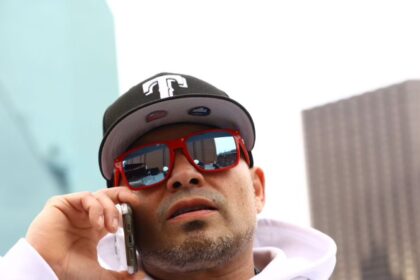Donald J. Trump has never shown much interest in grooming successors. When he left as host of “The Apprentice,” he mocked the ratings of his replacement. No alumni network exists for former Trump White House staff members in the way there does for the two presidents who preceded him. He signaled his approval when supporters chanted, “Hang Mike Pence,” during the Capitol riot on Jan. 6, 2021, a former aide testified to Congress.
But a funny thing has happened on the way to naming a running mate: With an increasingly theatrical selection process focused on a wide field of candidates — akin to reality TV — the former president has fostered a new crop of rising stars inside his party.
The group under consideration already constitutes some of the most coveted pro-Trump Republicans for cable news interviews. And their access to some of the party’s biggest donors has widened thanks to their newly burnished Trump bona fides. Whoever is not chosen as the Republican vice-presidential nominee undoubtedly will be among the first names discussed for the top of the ticket in 2028.
Representatives Byron Donalds of Florida, 45, and Elise Stefanik of New York, 40, along with Senator J.D. Vance of Ohio, 39, are widely viewed as some of the party’s most promising young stars. Senator Marco Rubio’s conservative credentials have been polished by Mr. Trump’s consideration of the Florida senator as a top contender. Gov. Doug Burgum of North Dakota has emerged from political obscurity to become one of the former president’s staunchest defenders on television.
Senator Tim Scott of South Carolina has gotten more exposure from being mentioned as a possible running mate than he did during his own presidential bid this year. Vivek Ramaswamy, an Ohio businessman, would most likely have faded into the background after ending his own White House bid, but he has been kept in the mix at campaign events and fund-raisers at Mr. Trump’s insistence.
“Trump has been enormously helpful to these people,” said Newt Gingrich, a former House speaker who Mr. Trump considered as a running mate in 2016. “They are all bigger and better known than they would have been without Donald Trump.”
Mr. Trump has helped raise their profiles by repeatedly praising them at rallies, mentioning them as possible running mates. His campaign has also created an apparatus tailored toward that aim. An internal booking team is explicitly tasked with making sure contenders are booked for cable news interviews and quoted in conservative media outlets. The campaign team has also helped contenders organize pro-Trump fund-raisers and provided them call lists with specific donors to ask for contributions for the Trump campaign, which could also help them in the future.
But the contenders also bring benefits for Mr. Trump.
In recent years, some of the party’s most visible pro-Trump voices have also been some of the most controversial public figures, such as Representative Marjorie Taylor Greene of Georgia, who was stripped of committee assignments in 2021 after endorsing the executions of Democrats and spreading dangerous and bigoted misinformation, and some on the conservative fringe, like Mike Lindell, the chief executive of MyPillow who has been a leading financial supporter of Mr. Trump’s election denial movement.
Republicans like Mr. Vance, Mr. Rubio and Mr. Burgum all have records of pointed criticism of Mr. Trump, but are now among his most vigorous defenders. By shedding their reservations about him and participating in the vice-presidential selection process, they have made Mr. Trump more appealing to more traditional Republican voters and donors while also demonstrating his total dominance of the party.
They have also become a credible army of pro-Trump, largely establishment voices for television interviews and at fund-raisers. After Mr. Trump makes his pick, the rest of this group will remain seasoned surrogates for the campaign as the election approaches.
Mark McKinnon, a longtime adviser to Republican presidential candidates, said that Mr. Trump had been wise not to focus on well-known figures from his Make America Great Again movement, which he said would have excited his base but not helped attract new voters.
“The interesting thing about what appears to be Trump’s short list are the dogs that aren’t barking — no MAGA celebrities,” Mr. McKinnon said, adding that it was “good for Trump short term electorally, but also good for the party because it broadens the appeal.”
Mr. Trump has long insisted that whoever he chooses should be ready to take over from him in the Oval Office if necessary.
“We have a lot of good people that we’re looking at,” Mr. Trump said in an interview on Newsmax in June when asked about his running mate. “But the most important thing, and I’ve said this quite a bit, and I guess a lot of people would say it, is if something should happen, something bad I guess it would have to be, but if something should happen, we have to have somebody that can step right in and do a great job as president.”
The former president has also appeared interested in floating as many names as possible to increase speculation but which has also, in turn, raised the profile for those Republicans.
In one example, Mr. Trump gave an interview on Fox News in February in which he was asked about six politicians — Mr. Donalds, Mr. Ramaswamy, Mr. Scott, Gov. Ron DeSantis of Florida, former Representative Tulsi Gabbard of Hawaii and Gov. Kristi Noem of South Dakota — and whether they were all on his “short list” of running mates.
Those six names were not all on his short list, according to people familiar with the running mate search, but Mr. Trump confirmed they all were contenders. That moment signaled to his aides that he was interested both in suggesting the search was wider than it was — and in helping elevate the profiles of his Republican allies.
Mr. Trump, in many ways, owed this to fellow Republicans. His out-of-nowhere presidential bid in 2016 has often been referred to as a hostile takeover of the party. But little consideration has been given to the impact of one of the key elements of that campaign, which was to effectively undermine what had been widely regarded as a deep and promising group of conservatives.
Bobby Jindal and Scott Walker, two young Republican governors who were seen at the time as the future of the party, ended their presidential bids before the first 2016 primary contest as Mr. Trump commandeered attention from the news media and Republican voters. Since then, both have been relegated to the sidelines.
Before launching their own 2016 bids, Senator Ted Cruz of Texas had been hailed as the next great conservative hope by National Review, and Senator Rand Paul of Kentucky was tabbed as the most interesting man in politics on the cover of Time. Both ultimately returned to the Senate, where they are known now more as key Trump allies instead of Republican wunderkinds.
After Mr. Trump eviscerated the campaign of Jeb Bush, marking the end of a decades-long run of Bush family dominance in Republican politics, many observers wondered where the party would go next.
“The Republican Party has a deep and talented bench, as demonstrated by the strength and diversity of the leaders who support President Donald J. Trump,” said Michael Whatley, the chairman of the Republican National Committee.








